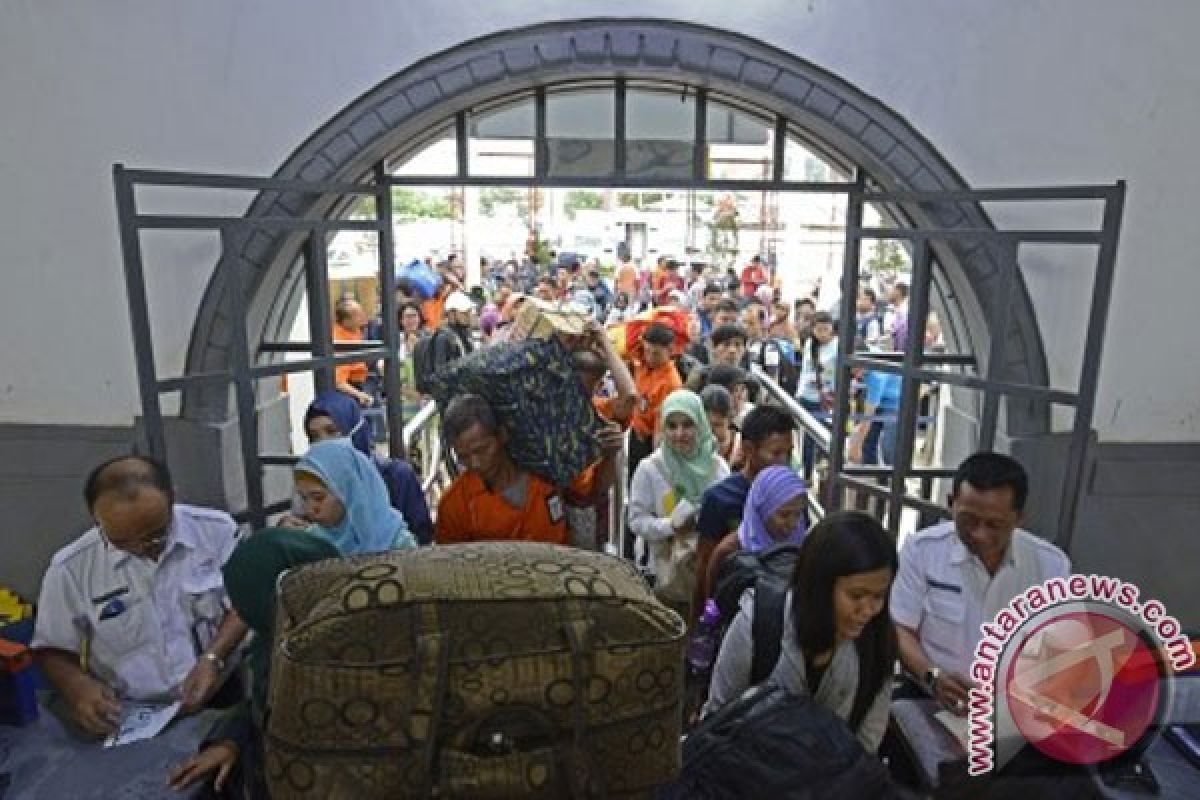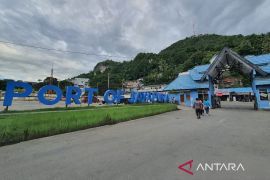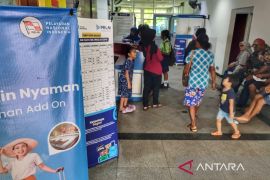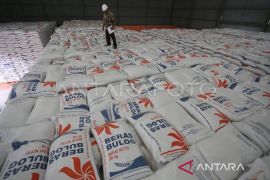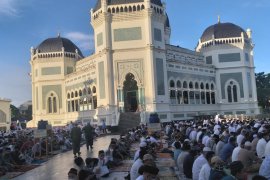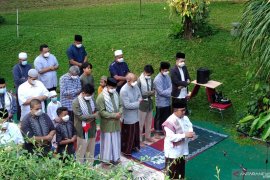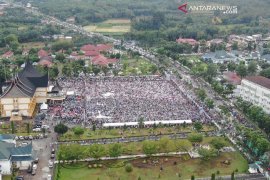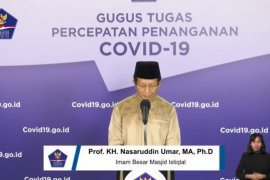The market operation is a measure to stabilize the prices and prevent price hikes ..."Jakarta (ANTARA News) - With July 17 just a day away, the Muslims across Indonesia are eagerly gearing up for the Idul Fitri or locally known as Lebaran festivities.
Lebaran is the most celebrated of all festivals, and thus, Indonesian Muslims have been making elaborate preparations for the celebrations to mark the end of the 2015 fasting month.
Everyone seems to be in a party mood. The aura of the holiday spirit can now be felt in the Greater Jakarta areas where the normally congested streets are pleasantly deserted, and one can actually take a deep breath without inhaling a lungful of pollution.
Muslims in Indonesia, who account for nearly 90 percent of the countrys population, are gearing up for Lebaran celebrations on July 17-18, this year.
During this time, the capital city of Jakarta reveals itself as a friendly city with wide, tree-lined avenues where pedestrians can stroll on the pavements without the danger of being hit by a motorbike.
The prevailing custom of Lebaran in Indonesia is one of the largest temporary human migrations observed globally when workers return to their hometowns to celebrate with their families and relatives and to seek forgiveness from parents, in-laws, and other elders.
Such a mass exodus, or homecoming, is known in Indonesia as "mudik," which is an annual tradition wherein the people living in major cities such Greater Jakarta, Bandung, Surabaya, and elsewhere, travel to their hometowns to visit their relatives.
In its efforts to handle the massive surge of travelers, the Indonesian government provides additional transportation facilities several days prior to and after the Lebaran festivities.
According to Transportation Minister Ignasius Jonan, his ministry has allocated Rp36 billion from the state budget for 2015 to provide motorcyclists and pillion riders free homebound rides ahead of the Idul Fitri Islamic holidays.
Jonan noted that in order to reduce the number of homebound travelers using motorcycles, the Transportation Ministry is providing trucks, trains, and ships to transport the motorcyclists and their co-passengers to their destinations for free.
While the ministry had opened online registration from June 1 to June 30, but those interested in the free rides can also register offline from June 15 to July 1.
More than 20 thousand motorcycles were registered, of which 3.1 thousand motorcycles will be transported by trucks, nine thousand by trains, and 10 thousand by ships.
The Transportation Ministry had announced its plan to offer the free travel program for homebound motorcyclists through print and electronic media a month ago, the minister pointed out.
Regardless of the polices efforts to secure travelers, accidents continued to take place. For instance, the accident involving a passenger bus plying on Palikanci toll road in Cirebon, West Java, on Tuesday, claimed the lives of 11 people.
To avoid such fatalities and reduce traffic accident cases, the National Police this month launched security operations termed "Ketupat Operation" from July 10 to July 25, 2015.
The operation is held to coincide with the Lebaran travelers exodus, which is a week before and after the D-Day on Friday, July 17.
"However, until Monday or four days before Lebaran (D-4), a total of 152 people have been killed in 723 accidents across the country," Brig. Gen. Agus Rianto, the Public Information Bureau chief of the National Police (Polri), noted on Tuesday.
He remarked that on (D-4), 207 traffic accidents were reported that resulted in 60 deaths, seriously injuries to 148 people, and minor injuries to 169 others.
The hardships and inconvenience endured by the travelers crammed in overcrowded buses, trains, and cars, even by motorbikes is unbelievable, yet they consider it to be a small price to pay to be able to spend the holidays with their family, relatives, and friends at home.
Lebaran is considered to be the most important day of the year when food plays a major role.
Among the various local dishes, most families usually serve up some traditional delicacies such as rice boiled in plaited coconut leaves shaped into rhombus packets known as ketupat or lontong, rendang or spicy beef simmered in coconut milk and various local spices, opor ayam or chicken meat cooked in coconut milk, sambal goreng hati or fried ground up chilies blended with beef liver, and several other dishes.
Since food plays an important role, the government has conducted market operations to stabilize the prices of food items during Ramadan and ahead of the Lebaran festivities.
The market operations are not only being conducted in Jakarta and its suburban areas but also across the country, Agriculture Minister Andi Amran Sulaiman noted.
"The market operation is a measure to stabilize the prices and prevent price hikes by supplying adequate food items to the markets," the minister stated during the launch of the market operations recently.
The market operation was being conducted in cooperation with the State Logistics Agency (Bulog), the trade ministry, and the transportation ministry.
Manager of Kramat Jati Main Market Salam noted that the market operation indeed helps to stabilize the food prices, which usually tend to increase during Ramadan.
"The market operation does not affect the traders but in fact helps them, as the prices decrease following adequate supplies," he stated.
In anticipation of the price hikes, President Joko Widodo had earlier officiated the launch of simultaneous market operations for food commodities in Cimahi, West Java.
Apart from West Java, market operations were also launched in South Sumatra, North Sumatra, East Java, Central Java, Jakarta, and South Sulawesi.
Lebaran, the day of togetherness, encourages people to spend most of their money, which they painstakingly earned during the year, on the festivities with their family.
It urges them to rent cars, book flights, or trains, just to meet their family and seek forgiveness from their parents.
(T.O001/INE/KR-BSR)
Reporter: Otniel Tamindael
Editor: Priyambodo RH
Copyright © ANTARA 2015
